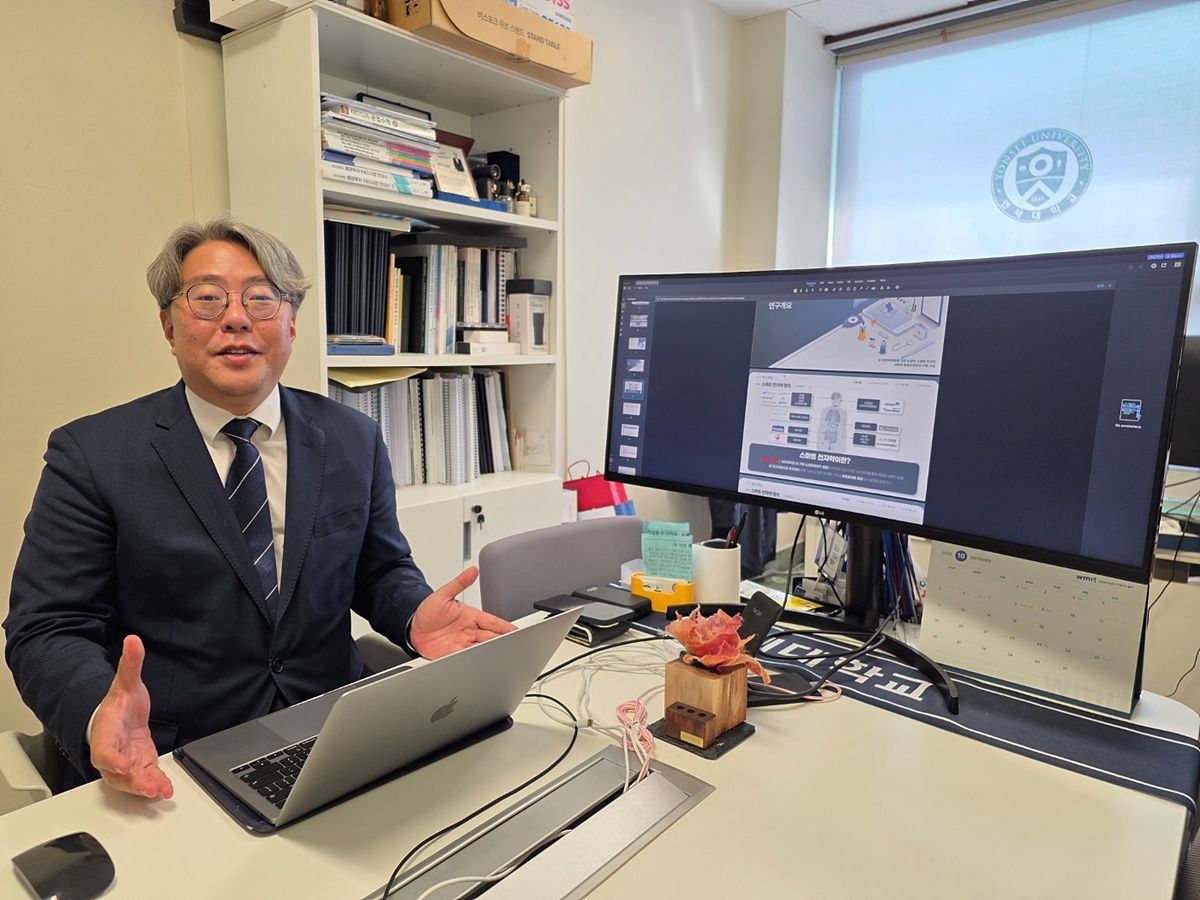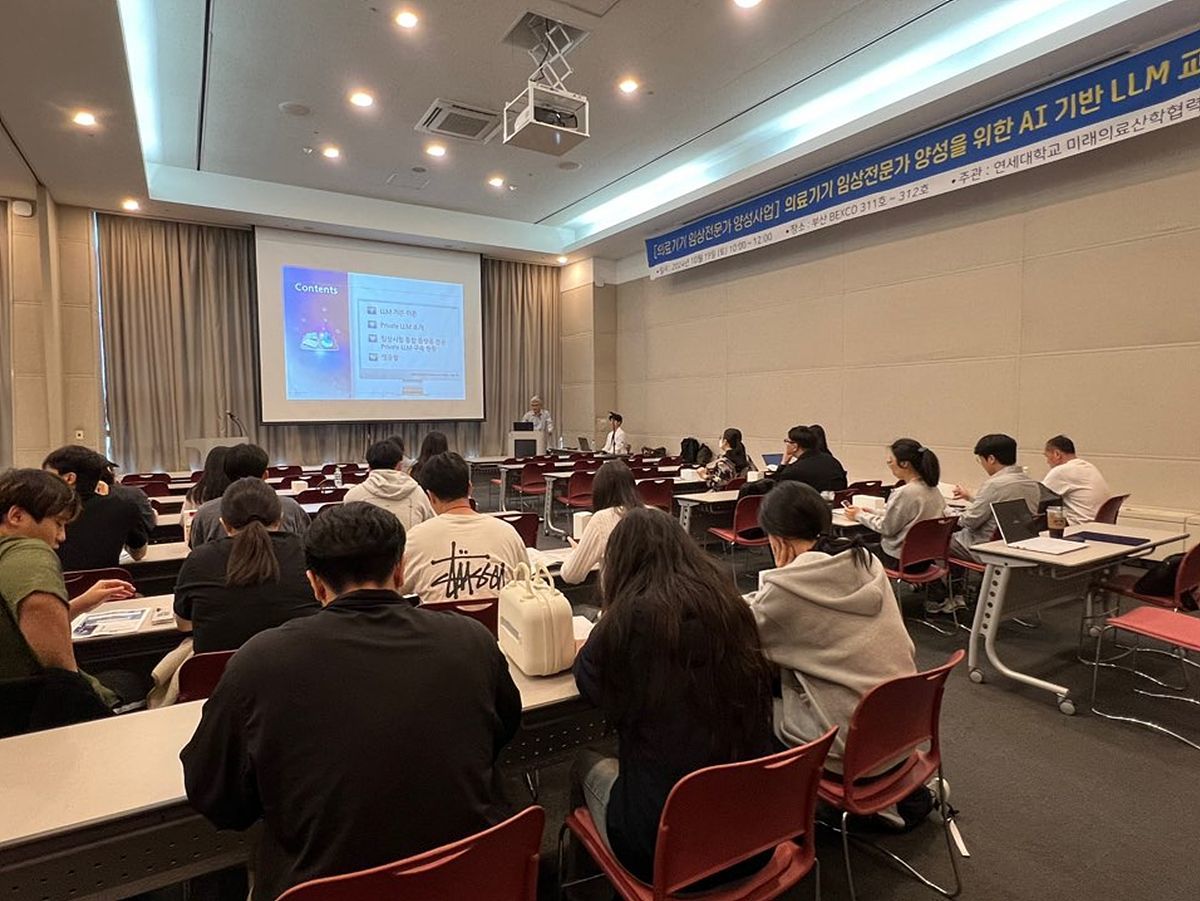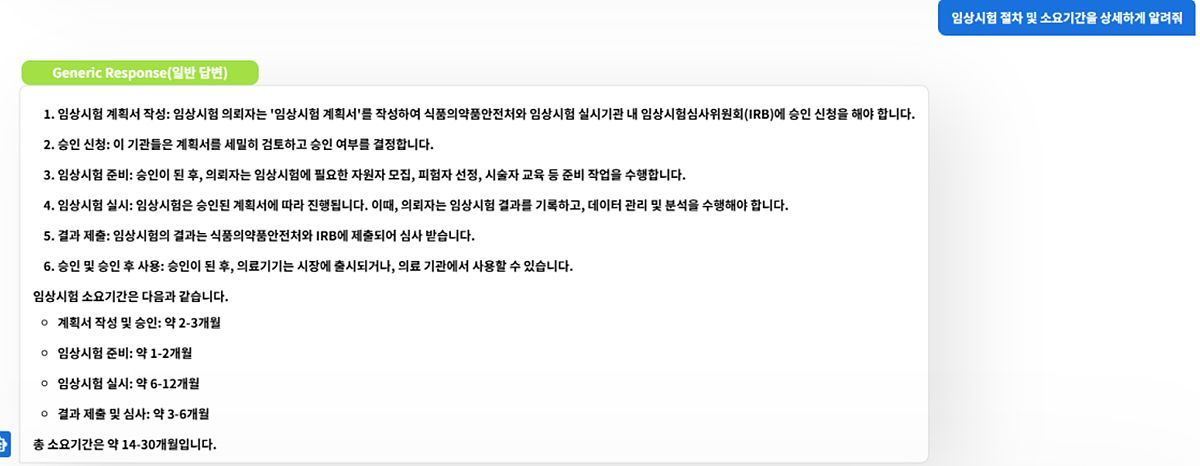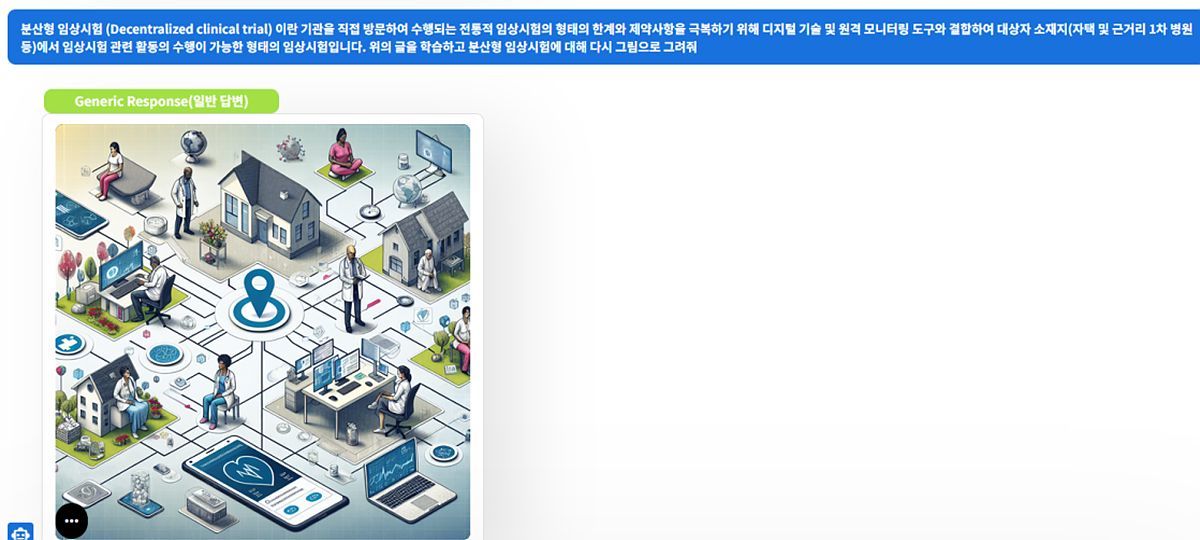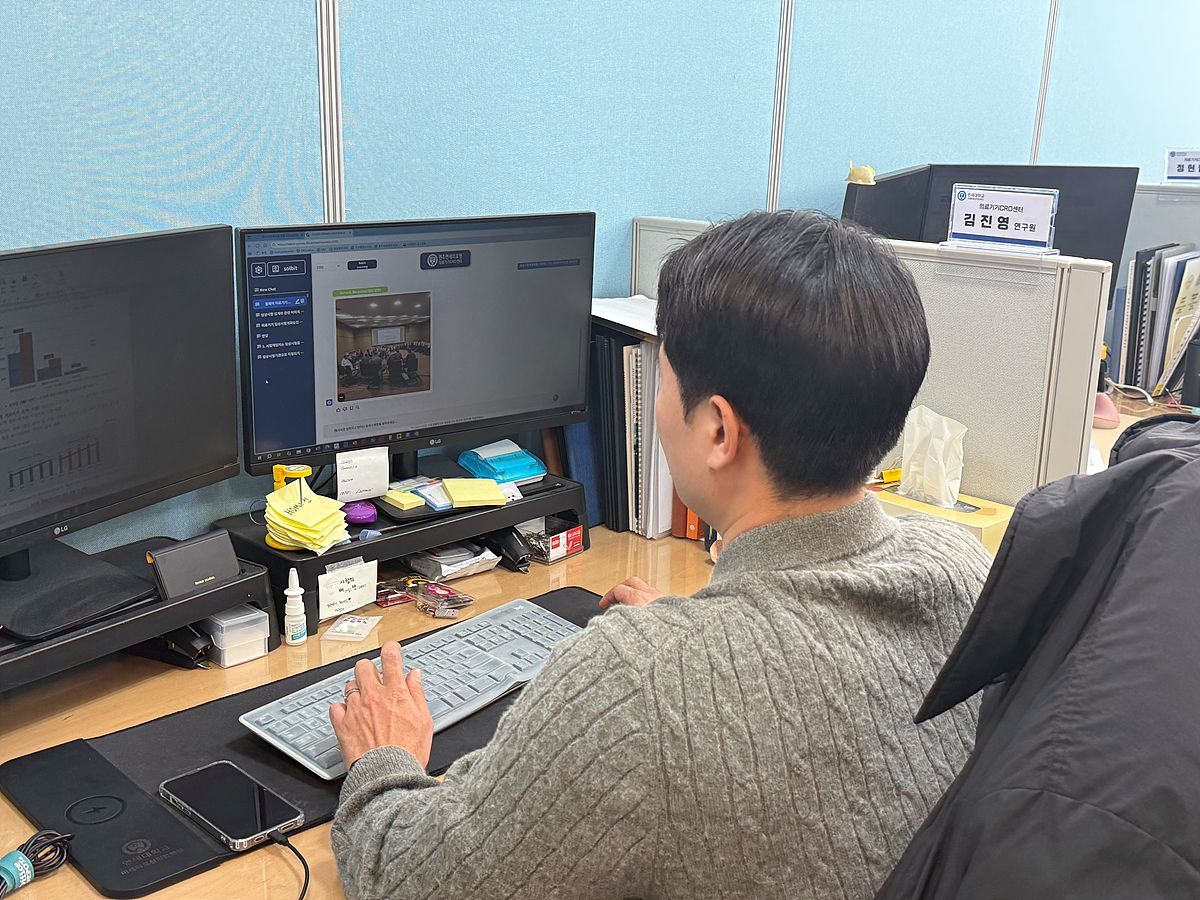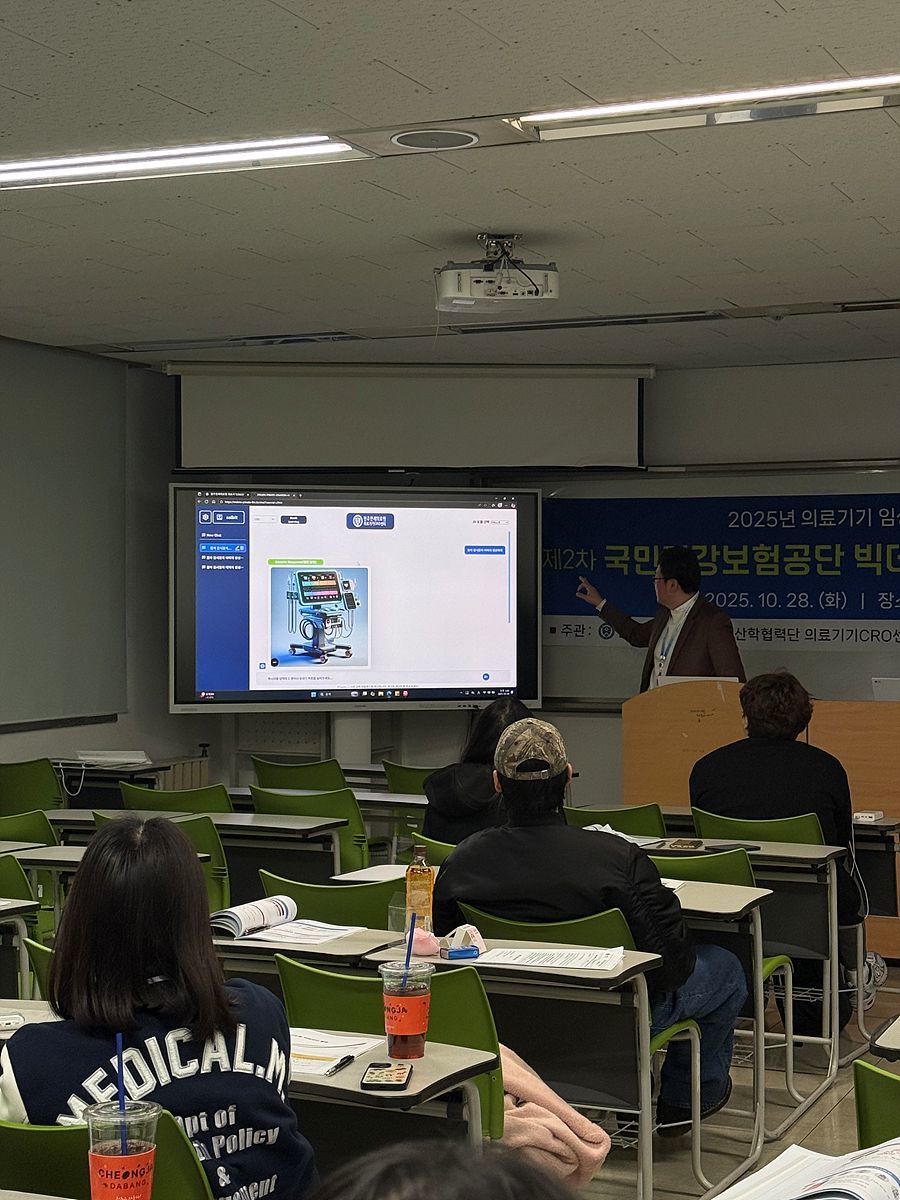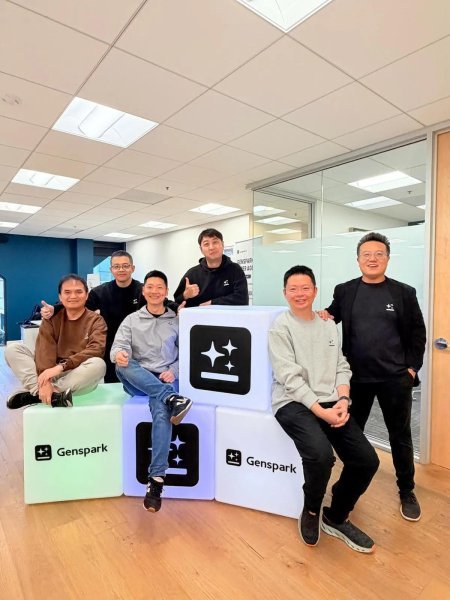
AI MedTech
Wonju Yonsei Medical Opens AI Device Clinical Era
Dong-A Ilbo |
Updated 2025.11.11
Creating medical devices that help people live healthier lives and sometimes even save lives is no easy task. It requires solidifying theories and concepts, developing experimental products, and thoroughly verifying their performance. Among these, the most challenging and crucial aspect is performance verification, or clinical trials. Clinical trials are the process of verifying not only the performance of medical devices but also ensuring there are no side effects or risks. No matter how good the theories and concepts of a medical device are, or how high its completion and utility, it is useless if it does not pass clinical trials.
Therefore, advanced countries support the growth of Contract Research Organizations (CROs) alongside medical device companies. CROs help medical device companies pass the difficult and important clinical trials more easily, saving resources in the process and providing greater momentum for growth. CROs and medical device companies and the industry are in a symbiotic growth relationship.
In Korea, the Gangwon Special Self-Governing Province's Wonju Gangwon Regional Innovation Cluster, a medical device manufacturing hub, has established such an ecosystem. Medical device companies located here achieved exports amounting to USD 655 million (approximately KRW 955 billion) in 2021, based on the cluster's support. Yonsei University Wonju Severance Christian Hospital adds strength to this effort.
Wonju Severance Christian Hospital is a tertiary general hospital and a community-based hospital. It is also the lead hospital for the National Innovation Cluster Advancement Project. It conducts various projects to drive the growth of medical device companies within the Gangwon Regional Innovation Cluster, including hospital-linked digital healthcare projects. It also attempts to integrate information and communication technology with the medical field. Previously, Wonju Severance Christian Hospital developed an emergency medical system that uses mobile communication networks to quickly diagnose the condition of patients in emergency transport vehicles (ambulances) and coordinate with local fire stations or emergency medicine departments. This improved both the speed and quality of emergency medical care. It also operates a doctor helicopter.
The activities of the Wonju Severance Christian Hospital Medical Device CRO Center, which opened in 2022, are noteworthy. It guides medical device companies within the cluster to smoothly conduct clinical trials and respond to clinical trials in advanced medical countries. Previously, it created a 'metaverse education system' allowing employees of local medical device companies and pharmaceutical companies to receive high-quality CRO education anytime, anywhere. As a result, stakeholders received realistic education in a virtual space that replicated the clinical field and shared opinions and knowledge freely, promoting mutual growth.
The Wonju Severance Christian Hospital Medical Device CRO Center started the 'private LLM dedicated to the clinical trial integration platform (hereafter private LLM) construction project' in 2024 and recently completed it. This project aims to enhance the information accessibility of medical device clinical workers using generative artificial intelligence that provides accurate information through conversational interaction. It also aims to help them easily and conveniently understand the procedures and requirements of clinical trials and prepare the necessary documents accordingly.
Under the leadership of the Wonju Severance Christian Hospital Medical Device CRO Center, the small and medium-sized information technology company 'SOLBIT' conducted the development and demonstration. Although similar tools existed before, they only allowed information exchange through text. The private LLM not only recognizes text but also images, creating appropriate explanations. It even produces images. It uses only reliable information created by the hospital and has a precise security system to prevent the leakage of sensitive medical data. It operates on a GPU-based cloud infrastructure, allowing use anytime, anywhere. After approximately six months of development and demonstration, the private LLM was deployed on-site and is currently being enhanced.
Professor Park Sung-bin of the Wonju Severance Christian Hospital Medical Device CRO Center, who led the private LLM enhancement project, has consistently attempted to integrate information and communication technology with medical technology. His long experience in the medical device sector allows him to understand the difficulties faced by stakeholders and the technologies needed on-site.
Professor Park emphasized securing high-quality data as the focus of the private LLM. The core of generative artificial intelligence is data. If the data is incorrect, the results will also be incorrect or flawed, which is unacceptable in the medical device industry. Therefore, the Wonju Severance Christian Hospital CRO Center input only data collected and handled directly, data from the Ministry of Food and Drug Safety, and data cross-verified and reviewed by researchers into the private LLM.
The center provides the developed private LLM on-site, receiving feedback from users and enhancing it based on this feedback. User reactions are very positive. It is highly praised for its excellence in creating clinical-related reports and presentation materials. The feature of providing not only text but also images is also praised for enhancing the understanding of complex and challenging clinical trials.
Professor Park expects that the continuous enhancement of the private LLM will reduce the information asymmetry problem in the medical device industry. Until now, hospitals have created, collected, and stored almost all medical data. However, there are few hospitals, and stakeholders have limited resources. Therefore, small and medium-sized companies researching medical devices or digital healthcare have struggled with utilizing medical data and preparing for clinical trials. Even when entering clinical trials, many wasted time and costs due to insufficient documents or missing essential data.
In contrast, using the private LLM allows any stakeholder in medical device and digital healthcare companies to utilize high-quality hospital data. They can prepare for clinical trials by freely engaging in Q&A as if talking to an actual hospital clinical stakeholder. Preparing for clinical trials based on accurate information reduces the waste of time and costs due to insufficient documents or data.
Professor Park plans to enhance the completeness of the private LLM and distribute it to more diverse places. The goal is to help Korean medical device and digital healthcare companies conduct clinical trials more conveniently, leading to the realization of innovative technologies and standing out globally. Almost all Korean medical device and digital healthcare companies are small and medium-sized enterprises. Many face difficulties due to limited manpower, capital, and the challenging clinical approval process. The private LLM is noted as a technology that can help solve clinical approval issues. It is also a technology that helps medical device and digital healthcare companies quickly adapt to rapidly changing technologies and clinical trends, and assists professors and faculty in the medical field to better prepare for clinical trials after technology research and development.
Including the CRO Center, Wonju Severance Christian Hospital will continue to introduce various information and communication technologies on-site to respond to market changes. Among these, Professor Park Sung-bin focuses on the 'Decentralized Clinical Trial (DCT)' technology. Traditional clinical trials were conducted by bringing participants to hospitals or CRO institutions, which required significant costs and time. In contrast, DCT allows participants to engage in clinical trials while living at home, significantly reducing the burden but requiring advanced information monitoring technology. Professor Park expects that information and communication technology, including the private LLM, will enhance both the completeness and efficiency of clinical trials in DCT.
Professor Park stated, "Information and communication technology drives the development of traditional industries. This is why Wonju Severance Christian Hospital actively integrates information and communication technology into the medical device and digital healthcare industry. The private LLM established this time will connect hospitals with abundant medical data and medical device companies, creating a synergistic effect and becoming a catalyst for the growth of the entire digital healthcare industry."
IT Donga Reporter Cha Joo-kyung (racingcar@itdonga.com)
Therefore, advanced countries support the growth of Contract Research Organizations (CROs) alongside medical device companies. CROs help medical device companies pass the difficult and important clinical trials more easily, saving resources in the process and providing greater momentum for growth. CROs and medical device companies and the industry are in a symbiotic growth relationship.
In Korea, the Gangwon Special Self-Governing Province's Wonju Gangwon Regional Innovation Cluster, a medical device manufacturing hub, has established such an ecosystem. Medical device companies located here achieved exports amounting to USD 655 million (approximately KRW 955 billion) in 2021, based on the cluster's support. Yonsei University Wonju Severance Christian Hospital adds strength to this effort.
Professor Park Sung-bin of the Wonju Severance Christian Hospital CRO Center introduces the private LLM dedicated to the clinical trial integration platform / Source=IT Donga
Wonju Severance Christian Hospital is a tertiary general hospital and a community-based hospital. It is also the lead hospital for the National Innovation Cluster Advancement Project. It conducts various projects to drive the growth of medical device companies within the Gangwon Regional Innovation Cluster, including hospital-linked digital healthcare projects. It also attempts to integrate information and communication technology with the medical field. Previously, Wonju Severance Christian Hospital developed an emergency medical system that uses mobile communication networks to quickly diagnose the condition of patients in emergency transport vehicles (ambulances) and coordinate with local fire stations or emergency medicine departments. This improved both the speed and quality of emergency medical care. It also operates a doctor helicopter.
The activities of the Wonju Severance Christian Hospital Medical Device CRO Center, which opened in 2022, are noteworthy. It guides medical device companies within the cluster to smoothly conduct clinical trials and respond to clinical trials in advanced medical countries. Previously, it created a 'metaverse education system' allowing employees of local medical device companies and pharmaceutical companies to receive high-quality CRO education anytime, anywhere. As a result, stakeholders received realistic education in a virtual space that replicated the clinical field and shared opinions and knowledge freely, promoting mutual growth.
Introduction to the private LLM dedicated to the clinical trial integration platform / Source=Wonju Severance Christian Hospital
The Wonju Severance Christian Hospital Medical Device CRO Center started the 'private LLM dedicated to the clinical trial integration platform (hereafter private LLM) construction project' in 2024 and recently completed it. This project aims to enhance the information accessibility of medical device clinical workers using generative artificial intelligence that provides accurate information through conversational interaction. It also aims to help them easily and conveniently understand the procedures and requirements of clinical trials and prepare the necessary documents accordingly.
Under the leadership of the Wonju Severance Christian Hospital Medical Device CRO Center, the small and medium-sized information technology company 'SOLBIT' conducted the development and demonstration. Although similar tools existed before, they only allowed information exchange through text. The private LLM not only recognizes text but also images, creating appropriate explanations. It even produces images. It uses only reliable information created by the hospital and has a precise security system to prevent the leakage of sensitive medical data. It operates on a GPU-based cloud infrastructure, allowing use anytime, anywhere. After approximately six months of development and demonstration, the private LLM was deployed on-site and is currently being enhanced.
Using the private LLM. When a user asks detailed questions about clinical trials, it provides appropriate answers based on reliable data. / Source=Wonju Severance Christian Hospital
Professor Park Sung-bin of the Wonju Severance Christian Hospital Medical Device CRO Center, who led the private LLM enhancement project, has consistently attempted to integrate information and communication technology with medical technology. His long experience in the medical device sector allows him to understand the difficulties faced by stakeholders and the technologies needed on-site.
Professor Park emphasized securing high-quality data as the focus of the private LLM. The core of generative artificial intelligence is data. If the data is incorrect, the results will also be incorrect or flawed, which is unacceptable in the medical device industry. Therefore, the Wonju Severance Christian Hospital CRO Center input only data collected and handled directly, data from the Ministry of Food and Drug Safety, and data cross-verified and reviewed by researchers into the private LLM.
Using the private LLM. A user asks a very detailed and lengthy question, including a photo request, and the LLM responds accordingly. / Source=Wonju Severance Christian Hospital
The center provides the developed private LLM on-site, receiving feedback from users and enhancing it based on this feedback. User reactions are very positive. It is highly praised for its excellence in creating clinical-related reports and presentation materials. The feature of providing not only text but also images is also praised for enhancing the understanding of complex and challenging clinical trials.
Professor Park expects that the continuous enhancement of the private LLM will reduce the information asymmetry problem in the medical device industry. Until now, hospitals have created, collected, and stored almost all medical data. However, there are few hospitals, and stakeholders have limited resources. Therefore, small and medium-sized companies researching medical devices or digital healthcare have struggled with utilizing medical data and preparing for clinical trials. Even when entering clinical trials, many wasted time and costs due to insufficient documents or missing essential data.
A researcher using the private LLM / Source=Wonju Severance Christian Hospital
In contrast, using the private LLM allows any stakeholder in medical device and digital healthcare companies to utilize high-quality hospital data. They can prepare for clinical trials by freely engaging in Q&A as if talking to an actual hospital clinical stakeholder. Preparing for clinical trials based on accurate information reduces the waste of time and costs due to insufficient documents or data.
Professor Park plans to enhance the completeness of the private LLM and distribute it to more diverse places. The goal is to help Korean medical device and digital healthcare companies conduct clinical trials more conveniently, leading to the realization of innovative technologies and standing out globally. Almost all Korean medical device and digital healthcare companies are small and medium-sized enterprises. Many face difficulties due to limited manpower, capital, and the challenging clinical approval process. The private LLM is noted as a technology that can help solve clinical approval issues. It is also a technology that helps medical device and digital healthcare companies quickly adapt to rapidly changing technologies and clinical trends, and assists professors and faculty in the medical field to better prepare for clinical trials after technology research and development.
Introducing the private LLM / Source=Wonju Severance Christian Hospital
Including the CRO Center, Wonju Severance Christian Hospital will continue to introduce various information and communication technologies on-site to respond to market changes. Among these, Professor Park Sung-bin focuses on the 'Decentralized Clinical Trial (DCT)' technology. Traditional clinical trials were conducted by bringing participants to hospitals or CRO institutions, which required significant costs and time. In contrast, DCT allows participants to engage in clinical trials while living at home, significantly reducing the burden but requiring advanced information monitoring technology. Professor Park expects that information and communication technology, including the private LLM, will enhance both the completeness and efficiency of clinical trials in DCT.
Professor Park stated, "Information and communication technology drives the development of traditional industries. This is why Wonju Severance Christian Hospital actively integrates information and communication technology into the medical device and digital healthcare industry. The private LLM established this time will connect hospitals with abundant medical data and medical device companies, creating a synergistic effect and becoming a catalyst for the growth of the entire digital healthcare industry."
IT Donga Reporter Cha Joo-kyung (racingcar@itdonga.com)
AI-translated with ChatGPT. Provided as is; original Korean text prevails.
ⓒ dongA.com. All rights reserved. Reproduction, redistribution, or use for AI training prohibited.
Popular News







